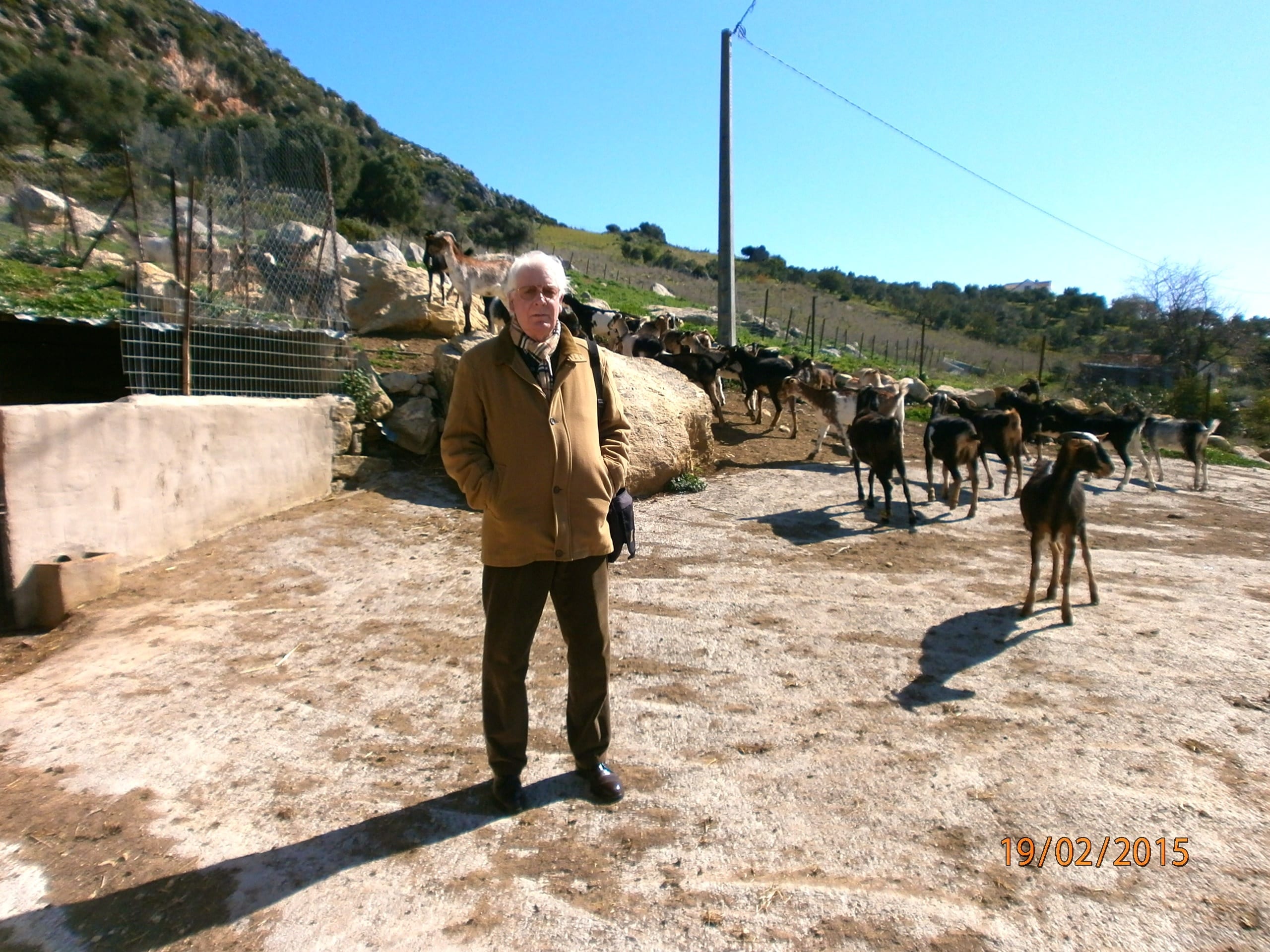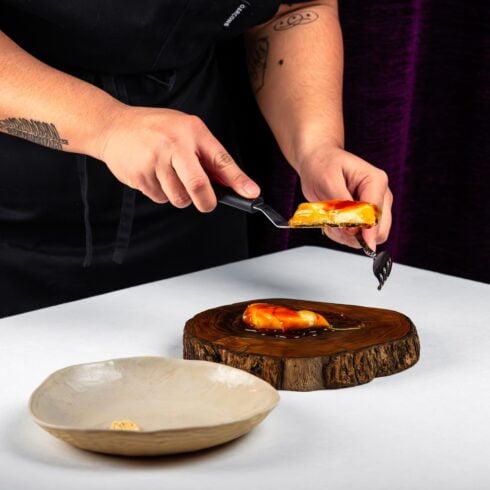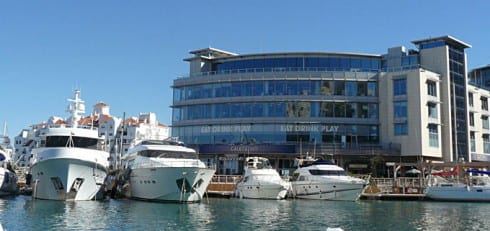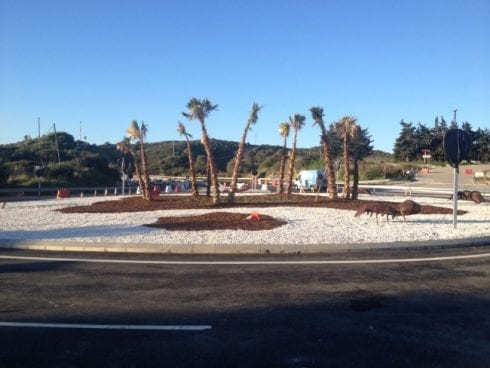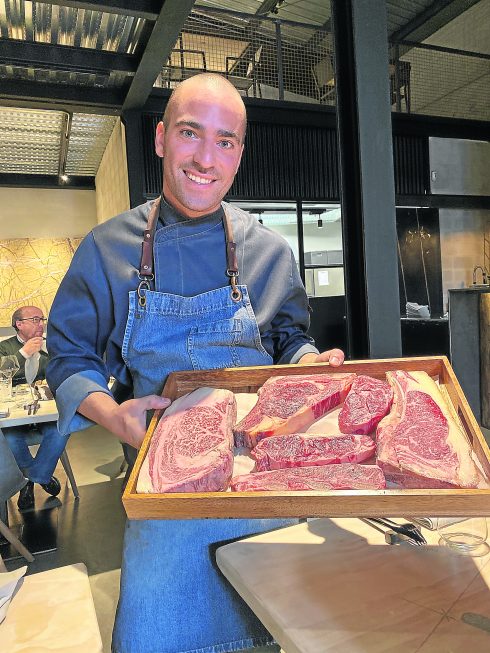ANY Spanish cheese connoisseur interested in the development of the dairy industry will know that books written by American journalists about Spanish cheese are pretty rare.

But GQ correspondent Michael Paterniti was so inspired by the fantastic story behind the world-famous Paramo de Guzman cheese that he moved his family across the Atlantic, to spend more than a decade immersed in the lives of the family that create it.
Now, after spending years intertwined in the lives of the residents of the village of Roa de Duero, in Burgos province – a few hours north of Madrid – Paterniti has published The Telling Room – subtitled ‘A story of love, betrayal, revenge and the world’s greatest piece of cheese’.
The narrative, based on a true story, is as gripping as any crime novel, featuring friendships betrayed, innocence lost and gruesome murder plots. But the cheese is no fiction, and is one of the most expensive ever created.
A devastating fire destroyed the factory in April 2014, and the last cheese was auctioned for charity in Madrid last month for an astonishing €275 – a rate of €110 per kg.
While this is undoubtedly a tragic loss for the cheese world, plans are in the pipeline to get everything back up and running at the factory soon. In the meantime, we Andalucians can console ourselves that we have some of the other best cheeses in the world, according to the prize list at London’s 2014 World Cheese Awards last November.
While Paramo de Guzman was nowhere to be seen, cheeses from Sierra de Cadiz villages (El Bosque, Villaluenga, Alcala de los Gazules, Villamartin) swept the board with a total of 19 top prizes – there were 3,000 entries from 34 countries judged by a panel of 250 experts – and the Super Gold medal went to a Payoyo cheese from Villaluenga del Rosario, a mountain village just a short drive from the coast.
But Payoyo – named after the breed of mountain goat – has become far more than a cheese, thanks to Paco Garcia, director of Elviria’s Michelin-starred restaurant, El Lago, a favourite of foodies from all over Andalucia.
After its launch in 2000, El Lago soon earned a Michelin star thanks to gifted cook Diego del Rio. And Paco, being an expert in all 50 varieties of Andalucian cheese (a decade ago there were no more than 10), produces one of the most satisfying cheeseboards you will ever find in a restaurant.
Paco sources his Payoyo from a small producer near Casares and had the bright idea of developing an ancillary market to the cheese. One day, having little better to do, he asked his chef Diego what it would be like to use meat from the Payoyo goat in the restaurant.
And dicho y hecho – or, no sooner said than done – and after experimenting and developing the appropriate sauces and trimmings, El Lago now has an amazing first on its hands: cheese and meat not only from the same race but from the same producer, Juan Ocana of the Queseria Sierra de Crestellina.
The lineage of food from farm to table couldn’t be plainer, with the chivo lechal baby goat nurtured exclusively on mothers’ milk forming a major part of the menu.
One of the star dishes, baby goat with smoked cheese and Guadalhorce mandarin orange sauce, served with mint-flavoured salad and baby vegetables, is a sight to behold – and eating it is even better.
So in an effort to push traceability of the food I had eaten to its limits, I hitched a ride up to the very farm that supplies El Lago with its Payoyo cheese and meat.
Juan was giving a class to a group of 12-year-olds from an Estepona school, reminding them not to wash their hands as bacteria is actually helpful for the cheese making process.
The goats are milked just once a day so as to keep them unstressed and their diet is kept as natural as possible. It is essentially a low-yield, high-quality operation and the three qualities of cheese – fresh (two days old), semi-cured, and cured are all excellent – and all available from the farm shop.
Not looking so happy were the little goats destined for the table before they reach a month old, but Juan, while admitting it is the part of his operation that he likes least, assured me that their short lives are spent happily in the hills of Andalucia.
Click here to read more News from The Olive Press.

